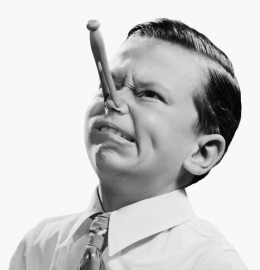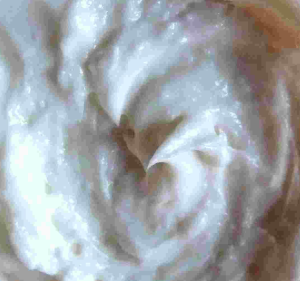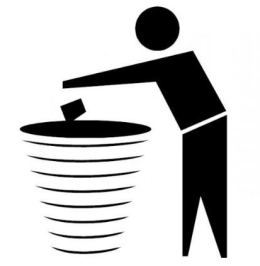Sure, you love your favourite skin cream very much, because it makes your skin silky soft like a little baby. But if it expires, you won’t like it as much any more. You might even come to hate it. Because if you start to get pimples, it’s very possible that that’s because your cream needs to hit the road, on a short trip straight into the trash bin!
But if my cosmetics products aren’t forever, and all my cosmetics love stories must come to an end…
How do I know if my products have gone bad?
Well, first of all, keep in mind that all products are different, so you can’t really know exactly how it will change. Still, there are a few pointers that can help you sort out your beauty case:
As I pointed out in two earlier posts of mine, here and here, the best before date is the first way to tell the good ones from the ones that have expired. If it’s past the date, odds are the product shouldn’t be used any more… (It’s not always true, but I can’t very well go and tell you to disregard the best before date… that’s just a matter of common sense.)
But even if the best before date is still far away, that certainly doesn’t guarantee that the product is still okay. You still need to inspect a number of things: colour, odour, consistency and bacteria.
 Colour: Variations in the product’s colour over time are to be expected, especially if your products are exposed to sunlight. This can vary from just some yellowing (which is okay) to more pronounced variations that might be less normal… These changes aren’t necessarily a problem to normal usage. It’s less okay if we’re talking about a colour change from the colour of ivory to that of chocolate… This is why you should store your products away from light, in a separate closet.
Colour: Variations in the product’s colour over time are to be expected, especially if your products are exposed to sunlight. This can vary from just some yellowing (which is okay) to more pronounced variations that might be less normal… These changes aren’t necessarily a problem to normal usage. It’s less okay if we’re talking about a colour change from the colour of ivory to that of chocolate… This is why you should store your products away from light, in a separate closet.
 Odour: Cosmetics are often complex mixtures of many different ingredients to which a fragrance is added to improve the resulting sensory experience. Because having to rub a cream onto your face that smells like feet isn’t the most glamorous thing, and it won’t sell amazingly either.
Odour: Cosmetics are often complex mixtures of many different ingredients to which a fragrance is added to improve the resulting sensory experience. Because having to rub a cream onto your face that smells like feet isn’t the most glamorous thing, and it won’t sell amazingly either.
The fragrance itself is also a complex mixture of substances that create those top, middle and base notes. Over time, certain interactions can take place and alter the overall scent. The fragrance could become less pronounced; that’s perfectly normal. On the other had if you start noticing a rancid smell, it’s likely that the oils that make up your product have become oxidised. That’s your cue to throw it away.
Note that certain products don’t smell very nice to begin with, due to certain active ingredients. Keep that in mind. It would be a waste to throw away a normally smelling product. What you need to watch out for is suspicious-seeming variations in the odour or colour.
 Consistency: You can sometimes notice how the feel of a cream changes over time. Like a chemical phase difference, i.e. a separation between the fatty phase and the aqueous phase. In that case, a light stirring should take care of that. In some particular cases, though – I’m particularly thinking of sunblock creams – this phase difference can make the product unfit for use. This is because:
Consistency: You can sometimes notice how the feel of a cream changes over time. Like a chemical phase difference, i.e. a separation between the fatty phase and the aqueous phase. In that case, a light stirring should take care of that. In some particular cases, though – I’m particularly thinking of sunblock creams – this phase difference can make the product unfit for use. This is because:
1) A change in the cream’s consistency affects its spread, while the effectiveness of the product relies on a correct application. The well-known sunblock protection rating, the SPF, is calculated assuming a completely regular spread of the product (2mg per cm²). (I’ll write an article on this later.)
2) Sunblocks are also usually made to be water resistant, but if you have a phase difference, just shaking the bottle cannot get its complex emulsion back, not even if you ask your guy to shake the bottle for you. (The sunblock’s normal emulsion is achieved with industrial machinery that can shake it with a rotation speed of 2000 to 4000 rpm.) The emulsion won’t be as water resistant any more, and after going into the water just once, you’ll no longer be protected. It would be a better idea to just get a new bottle of sunblock, rather than getting sunburns, or worse.
 Bacteria: Of all the variables, this is the one you should be most worried about. There’s a good reason why cosmetics contain preservatives. It’s in order to protect the product from bacterial infections and keep it suitable for use for a longer time, so you don’t end up with a nest of bacteria…
Bacteria: Of all the variables, this is the one you should be most worried about. There’s a good reason why cosmetics contain preservatives. It’s in order to protect the product from bacterial infections and keep it suitable for use for a longer time, so you don’t end up with a nest of bacteria…
So if you notice any accumulations of odd-looking black or grey stuff in your cosmetics, look no further! It’s probably a colony of bacteria or fungi. Bingo! We have a winner! And the prize is another one-way trip to the trash bin. If you would continue to use a contaminated product (to the more reckless ones among us: you know who you are), you risk getting yourself bacterial infections that you won’t forget for a long, long time.
This is why the longevity of a product is determined from the very beginning by the presence, the nature and the amount of preservatives it contains, but it’s also significantly influenced by the ways that products are stored and used.
Naturally, the best before date should be taken with a grain of salt. You should realise it’s a sensitive variable that’s easy to deliberately reduce, not in the interests of the consumer, but in those of the manufacturer.
Why would anyone do that? Because a consumer who doesn’t use their product is a customer who doesn’t buy a replacement.
Suppose a product sells really well, and has a short best before date. A consumer who is aware of this will be unintentionally encouraged to use it up quickly, and then quickly buy another bottle… which means more sales for the brand.
I have a feeling that saying this is going to get me bad comments from certain people…
I’m not saying this happens all the time, but as always, be critical and use your common sense.
What do you think? Do you pay attention to the best before date? Do you say “ well, as long as I don’t see any problems I don’t care”, or “oh no, only two more days and I still have half a bottle, I have to use it all up before Sunday at midnight”?

to be honest, I don’t pay much attention to the dates, not good? heh, but will try to check, thank you for this informative article.
I will follow your blog from time to time.
Have a nice day.
ellasente
hi ellasente,
I suppose most people do not really care about those labels, the question is : if it was food, would you check the label? and make sure what you eat is healthy? 😉
Very good blog post. I definitely appreciate this site.
Continue the good work!
Thank you for stopping by 😉